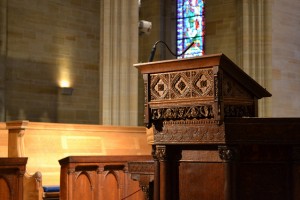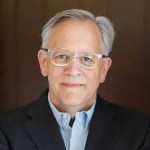Pastors in America are wonderfully and widely diverse. Some are highly educated with degree titles; others have nothing more than a love for God and a study Bible. They serve in urban, rural and suburban settings, in small churches and large churches.
Yet there are similarities common to all. Being pastor impacts the lives of people, local congregations and society in significant ways. This role is very demanding on those who serve, often leading to fatigue and frustration. All pastors are also charged with the task of tending the flock of God (1Peter 5) and correctly handling the Word (2 Timothy 2).

It is vital that seminaries engage in the process of developing people who are encouraged to think deeply and creatively about theology, cultivate new skills, and nurture their hearts, so that they might pursue their calling with excellence and passion. This training is not just for those who are pursuing advanced degrees. Seminaries need to make excellent theological education available to a broad range of eager learners.
There are growing numbers of pastors who are serving in congregations, some of them quite substantial, who for a variety of reasons are not able to engage in formal theological training. Some do not have prerequisite degrees, some cannot afford the high cost of theological training, some cannot relocate near a physical school, and some are serving the church bi-vocationally. These pastors too must be given the necessary theological tools to serve well.
The local church is the primary means by which God’s mission is pursued in the world. Seminary training used to be confined to pre-service education where a student moved to a geographical location, went to school full time for 3 or so, accrued a lot of debt, and then got a church job somewhere. Now theological education takes place in many locations, incorporating online learning communities, often with students who are already engaged in ministry.
Theological education must not be allowed to domesticate the faith, rather it must be a forum that energizes the faith to be a gospel fire that engages the world with good news. Theological seminaries must not be beholden to the constraints of the academy or denominations, but rather, while remaining grounded in the wisdom of the past, seminaries must venture into new, sometimes uncharted territory. Good sailing requires both a keel and a sail. The keel keeps the boat upright; the sail propels the boat forward.
I see the expanding mission of the theological seminary to be serving and resourcing the whole church. Here are some examples:
- We cannot be content just offering degrees that launch pastors in a professional mode at the beginning of their church career. Pastors need to engage in lifelong learning endeavors whether through advanced theological degrees or non-credit learning communities.
- Seminaries are storehouses of great theological resources. These resources must be shared widely with church leaders, not just on campus, but even more so electronically. The greater church must be given access.
- Conferences are great to attend, and often a lot of fun, but pastors also need places where they are forced to think new thoughts, not just the ideas of their tribe. Pastors need to be challenged and disrupted. Seminaries can provide the forum for this thinking.
- Bi-vocational pastors, pastors serving in urban and rural areas need to be able to receive high quality theological training. Seminaries need to think beyond just offering masters and doctoral degrees.
- Seminary training in a variety of forms no longer just trains people to be pastors or missionaries or therapists. Seminary training must also provide educationally relevant and theologically thoughtful resources for business people, artists, musicians, and professionals. The mission of God extends into all realms and vocations.
Theological seminaries must continue to develop new programs that serve a diverse and changing church.
Kurt Fredrickson, DMin, PhD, is Associate Dean for Doctor of Ministry and Continuing Education, and Assistant Professor of Pastoral Ministry at Fuller Theological Seminary. Prior to coming to Fuller, he served for nearly a quarter of a century as a pastor at the Evangelical Covenant Church of Simi Valley, CA.
Follow Fuller Seminary on Twitter at @fullerseminary.















